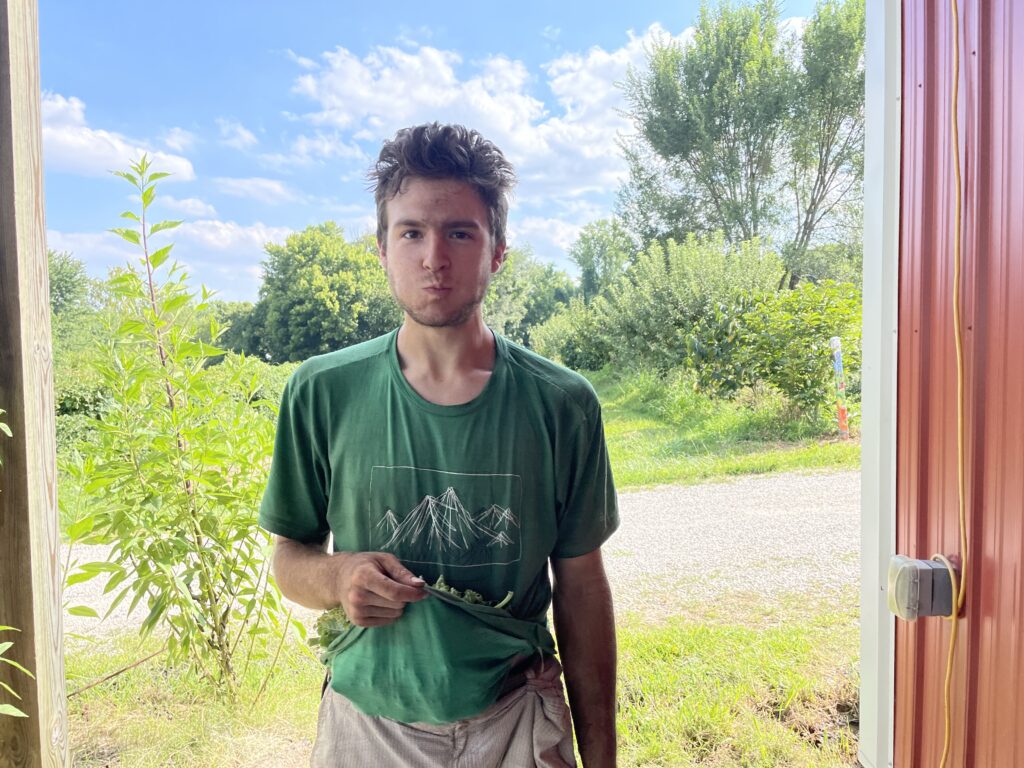- Date published
AJ Hulgus shares about his experience with Leaders in Community Service.
“I am kind of obsessed with radical sustainability,” said AJ Hulgus, a senior psychology major at Missouri State University. “There is so much power in taking ownership of your essential needs, thereby of your life, of what you stand for in your environment.”
When he had an opportunity to participate in the Leaders in Community Service program in the 2022-23 academic year, he knew where he wanted to focus his efforts: the Springfield Community Gardens.
“It’s a community intervention that is simultaneously grassroots and systemic,” Hulgus said.
The non-profit provides more than just food; they educate and participate in community development as they address food security.
“Before LCS, I was delivering pizzas, and I knew this would be a step up,” he said. “Now I get paid to do something that feels positive. We all crave to make the world better. This is the experience that takes you beyond as a student, professional and community servant.”
Through Leaders in Community Service, or LCS, Hulgus worked approximately 350 hours with the Springfield Community Gardens, assisting with:
- Garden planning and workdays
- Research and collecting information for grants
- Administrative and office tasks
- Planning volunteer outreach
- Sharing content on social media
“I think the experiential value of working for a nonprofit is unbeatable,” Hulgus said. “You are essentially ‘free labor’ for your agency. Because nonprofits are very lean-staffed and perform many unique functions, you have some leverage to seek out experiences that are personally and professionally meaningful to you.”

What is LCS
LCS is a student organization at Missouri State that is dedicated to serving the Springfield community and giving life to the MSU public affairs mission. Student participants must qualify for the Federal Work Study program and then interview for selection into the program.
Once students are chosen and matched with a local non-profit agency, students work with the agency (as paid employees) and gain invaluable experiences throughout the academic year.
Hulgus appreciated the experiential learning aspect, noting that, “learning to handle more complex, uncertain, unstructured and consequential tasks has been a good refresher for what the real world is like.”
Students are also required to participate in at least one service project in the community each semester.


